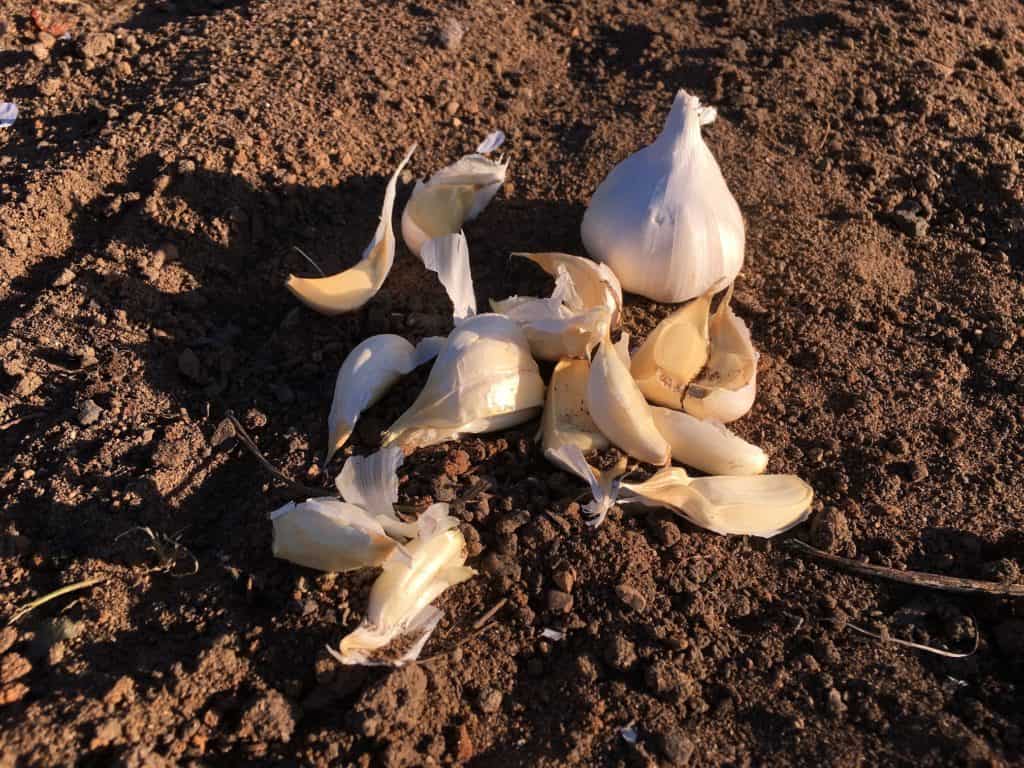
by Melinda Myers
Add a bit of flavor and health benefits to your main course with some homegrown garlic. This vegetable has been used for thousands of years as both food and medicine. Today it is credited with fighting heart disease, lowering blood pressure and cholesterol, and boosting the immune system while fighting cancer.
Grow garlic in a well-drained soil and full sun. Plant cloves in fall about six weeks before the ground freezes in cold climates and early winter in warmer regions. Garlic needs six to eight weeks of cool temperatures below 40 degrees for the shoot and bulb to develop. The leaves will form during cool, short days then slow as bulb growth begins when the days are warmer and longer.
Plant individual cloves with the pointed side up and the base of the clove 2-3 inches below the soil surface. Space cloves 6 inches apart in rows 12-14 inches apart or more depending on the variety.
Mulch the soil with weed-free straw after the ground freezes in regions with cold winters. This provides added insulation and helps prevent frost heaving that occurs when temperatures fluctuate, causing soil to alternately freeze, thaw and shift throughout the winter.
Water thoroughly and often enough to keep the soil evenly moist during active growth. Inconsistent moisture during the growing season results in misshapen bulbs. Mulch the soil with shredded leaves, evergreen needles, or other organic matter to conserve moisture, suppress weeds, and improve the soil as it decomposes.
Double your garlic harvest by using the curlicue stems, called scapes, in cooking and flower arrangements. Watch for these curled stems about a month after the spring leaves appear.
Remove the scape soon after the swollen part appears at the tip of the stem. Cut or break the scape off just below the swollen area. All parts are edible and can be used fresh or cooked just like garlic. You will not only enjoy the mild flavor but removing the scapes helps increase the size of the garlic bulbs.
Harvest garlic when about one-third, but less than one-half of the leaves turn brown. Start by digging one plant and checking the garlic for maturity. Cloves should be plump and fill the skin. Immature garlic does not store well while over-mature bulbs are subject to disease.
Cure garlic for three to four weeks in a warm, well-ventilated location. Once dried, remove the tops and store in a cool, moderately humid location with good air circulation and out of direct sunlight. Properly harvested and cured garlic will last for up to eight months.
So, plant some garlic this fall and add flavor and health benefits to your meals.
Gardening expert Melinda Myers has 30 years of horticulture experience and written over 20 gardening books. Myers hosts The Great Courses “How to Grow Anything” DVD series and radio segments. Myers is a contributing editor for Birds & Blooms magazine. Myers’ website is melindamyers.com.




